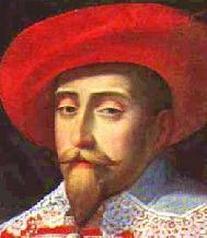I don’t claim to understand Syria or its war, but I trust experts who say it is complicated more than I trust third-rate pundits in the USA who repeat silly claims that it is a “popular rebellion against a dictator that is being repressed”. That kind of analysis is easy and lazy, and ultimately boring.
If Syria is a multifaceted ethnic-religious-political-cultural civil war with significant foreign intervention, what are some analogies to other wars in our history which Western people would know more about? Two strike me:
(1) The Spanish Civil War (1930s). Orwell’s book, Homage to Catalonia, described a frantic and angry civil war within the “Republican” (anti-Franco) side itself. He identified three main paragroupings (and his favored side was crushed by the Stalinists, as he recounts it). This is similar to the wide range of ideologies among Syria’s co-called “Rebels” (and the government). In Spain, there was not necessarily an ethnic-religious angle akin to Syria’s today (though the case can be made, it was once pointed out to me, for a real implicit ethnic-religious angle to the Spanish war).
(2) Europe’s Thirty Years War (1618-1648), a war for Catholic or Protestant domination of Central Europe. This had a definite ethnic-religious angle, as Syria does, and many interventions. The 30 Years War ended in a kind of draw. The German-speaking population of Europe was reduced by one-third; neither Catholic nor Protestant dominated. However, Protestants won more rights, the empire was weakened, and Germany was splintered into 300 statelets.
 King Gustavus Adolphus of Sweden,
King Gustavus Adolphus of Sweden,
“the Lion of the North”
One result I see of this war was the end of a Catholic-dominated Europe. Before 1648, Protestants were always a kind of rebellious minority, in fact or in imagination. The war won them normality, a large majority of German-speakers in Europe, and a major “civilizational morale boost” (or so I imagine). The split with the medieval and feudal past was complete, allowing the Protestants of Europe to seize their own destiny. Up to three centuries of spectacular output followed. The early USA, e.g. is an obvious product of secular-Protestants.
Being of half-Scandinavian background and (nearly) half-German-Lutheran background, I almost can’t help but sympathize with the Protestant side in that war. And, in my biased view, an abject defeat of the Protestant side (e.g., by a total failure of the Swedish campaigns under King Gustavus) would have been a defeat for Europe itself, a partial step back into the medieval order.
